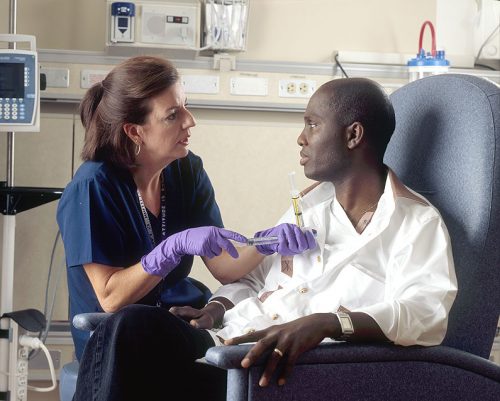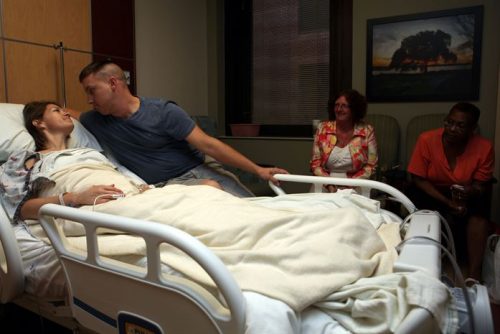Cancer is among the many incurable diseases that make people’s knees wobble. Anything will do except for that because it is an ultra-sensitive and expensive condition in comparison with the likes of diabetes, skin asthma, and much more. The survival rate varies as well, depending on which organs the cancer cells get activated.
However, is it possible to keep your marriage healthy if you cannot escape a cancer diagnosis?

The answer, for sure, is a resounding yes. Many couples go through life-and-death circumstances, and they come out of it together. Besides, just because there’s no cure for cancer it means that there are no treatments for the illness. Learn some of the options BetterHelp professionals can provide.
Should you wish to know how to have a healthy union after getting diagnosed with the big C, check out the following tips:
- Accept
Feeling as if your husband or wife received the wrong diagnosis is normal. You cannot accept the news that he or she has cancer, so you go for second, third, or even fourth opinion from other physicians.
However, after speaking with all those individuals and obtaining the same results, you should stop refusing the truth already. Not believing the doctors at that point will only make things difficult for your spouse, as they cannot get the necessary treatment stat. You might eventually fight over it as well, which will stress him or her out.
- Prioritize
Once acceptance comes, you do not exactly have the luxury to mull things over at a leisurely pace. Cancer cells can attack in stealth mode. That is why you and your better half need to decide on how you will take on this life challenge together.
A practical approach is to seek seasoned specialists at first. Talk to people who have had cancer too, so that you know what they did or are still doing to combat the disorder. You are welcome to consider holistic therapies to complement the medication that your doctor will prescribe, but you need to run it by the health professional beforehand.
- Learn
One way to assist your ill spouse after the diagnosis is by acquiring information about the type of cancer that he or she carries. Find out the symptoms you should be looking out for; understand what triggers them. You cannot leave the care to a private nurse or the doctor no matter how hectic your schedule must be since your lack of knowledge about how your significant other is feeling can put your marriage at stake.
- Communicate
The illness itself can make a person feel dull or gradually intensifying ache on specific body parts. When the medication or radiation therapy begins, the side effects may show up immediately and cause your better half to become cranky or too tired to do anything.

To avoid any argument, you have to communicate your thoughts well and often to each other. Encourage your husband or wife also to be honest about their feelings – and vice versa – so that you will both know how to tread the waters every day.
- Partake
You may also participate in your spouse’s healing as much as possible. Of course, it is not within your capability to handle the machines that specialists utilize to treat cancer these days, but you are free to look after your significant other before and after every session.
Once the patient realizes that you are genuinely in it for the long haul, he or she may have a stronger reason to fight the disease.
- Commit
Finally, there’s no chance for the marriage to not last once you do not give up on your better half. You are and will always be the #1 support system that your husband or wife needs. Without you by their side, they may find it difficult to rely on their parents or friends during chemotherapy or any treatment that the doctor recommends. So it is better that you stay with your other half throughout their journey.

Knowing that the love of your life has cancer is undoubtedly one of the things you wish you just misinterpreted. It is far worst than devastating. It may be challenging to take in, especially if your spouse is still young and full of vigor. Regardless of that, you need to let go of your fears to become the best caregiver that your significant other can ever have and to keep your marriage intact.
